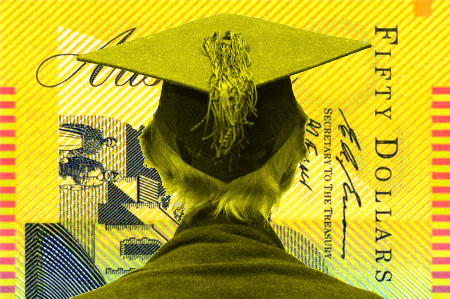HECS change put forth
 The Australian government has introduced a bill to ease student debt.
The Australian government has introduced a bill to ease student debt.
Education Minister Jason Clare has announced the introduction of a bill that will wipe $3 billion off student loans for more than three million people.
The move comes in response to widespread concern over the sharp increase in HECS indexation due to inflation.
The proposed legislation will change how HECS debts are indexed.
Instead of relying solely on the Consumer Price Index (CPI), which led to substantial increases in debt, the indexation will now be based on the lower of either the CPI or the Wage Price Index (WPI).
This change is expected to reduce the average student debt by around $1,200, with larger debts seeing even greater reductions.
Clare says the adjustment is part of a broader effort to create a fairer education system in Australia.
“Last year when there was a big spike in inflation and a big spike in HECS indexation that hit a lot of Australian students and a lot of Australians with student debt really hard... They thought it was unfair, and so did we,” he said.
The bill also introduces the Commonwealth Prac Payment, a $319.50 payment for students in specific fields like nursing, teaching, midwifery, and social work during their unpaid practical placements.
This measure seeks to alleviate the financial stress faced by students during these placements, which often require them to balance unpaid work with part-time jobs.
Deputy Greens Leader Senator Mehreen Faruqi has criticised the bill, describing it as a “mirage” that only provides minimal relief.
She argues that while $3 billion sounds substantial, it barely scratches the surface of the over $74 billion in student debt held by Australians.
Faruqi also called for more comprehensive measures, including the complete eradication of student debt.
Student groups have echoed this sentiment.
The Australian Medical Students’ Association expressed disappointment that medical students are excluded from the Commonwealth Prac Payment, noting that the demanding nature of medical degrees often results in over 2,000 hours of unpaid work.
Similarly, Students Against Placement Poverty says the bill does not go far enough in addressing the financial difficulties faced by placement students.








 Print
Print